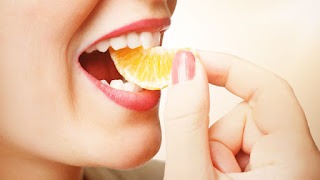Dental Trauma
Dental trauma
Dental trauma is
comparatively public and can occur secondary to falls, fights, sporting
injuries, or vehicle accidents. Because many clinicians work in a public
environment where there is no dentist on call for danger, they may find
themselves involuntary to deal with serious dental injuries in such
circumstances.
A study sought to
determine whether oral cavity cancers occurred more commonly at the places of
dental trauma. The study concluded that oral cavity cancers occur predominantly
at the place of possible denture trauma, especially in non-smokers without
other risk factors. A main point of this study was that the location where oral
cavity cancers arise is different in smokers and non-smokers. Identifying teeth
irritation as a potential chemical should have an impact on prevention and
treatment plans.
Prevention
Most of the dental traumas are preventable, and
these protections minimize the danger:
- Always wear your car seat
belt to be safe from injuries while accidents and children should be safe
in car seats.
- Homes should be checked for
potential tripping and slipping hazards which increase the chance of
dental trauma.
- Child-proofing measures
should be taken especially for kids and these include measures such as
placing gates across stairs, padding sharp edges and tucking the
electrical wires.
- Mouthguards should always be
worn by athletes who is taking part in the sports such as football,
wrestling, boxing, skateboarding, in-line skating, bicycling etc
Medical valuation
Initial valuation
of a patient with dental trauma should contain the following process:
- Proper physical checking of the head, neck, and face.
- Valuation of possible injuries to end-to-end areas and structures
- CT Scan of the head, neck, and maxillofacial bones
- Periapical radiography
- Panoramic radiography of the teeth
Infection is a common problem but can be managed with a course of antibiotics. With appropriate interferences and suitable treatment, the prognosis for curing dental trauma is good.





Thank you for this thorough post on dental trauma. It’s eye-opening to see how often injuries from falls, sports, or accidents can affect oral health, and how prevention (like mouthguards, child-proofing, and road safety) plays such a big role. Having reliable imaging and prompt treatment certainly make a difference in prognosis.
ReplyDeleteFor those who want to ensure they get the best possible care, it helps to find someone who handles dental emergencies well, ideally one of the best dentists in Dallas or in Murphy. These practices often have specialists on call and are equipped to deal with trauma as well as long-term oral health needs.